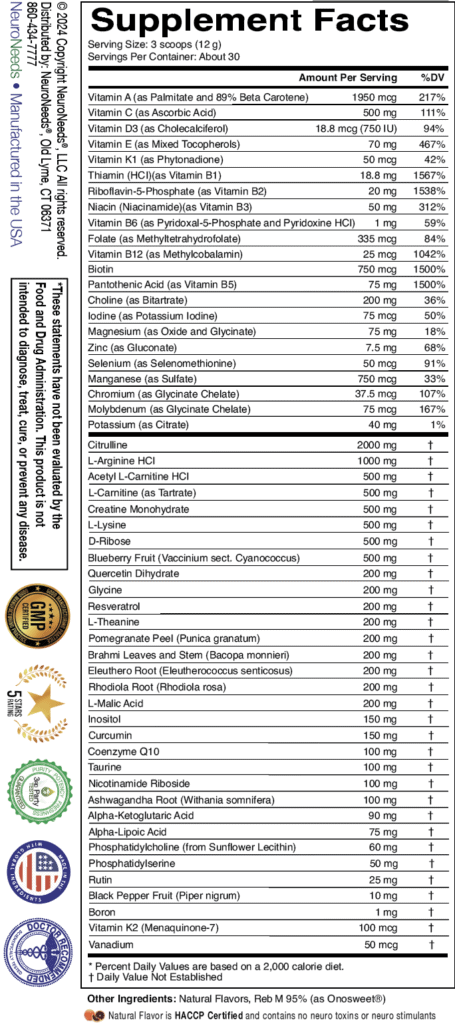$84
Pomegranate peel
Pomegranate peel, a byproduct of pomegranate juice production, is a rich source of polyphenols, including flavonoids and ellagitannins, which are powerful antioxidants. These antioxidants may reduce oxidative stress, lower blood pressure and cholesterol levels, and restore heart health. Ellagitannins are converted by normal gut bacteria to urolithin A. In one study, urolithin A demonstrated improvements in muscle strength, aerobic endurance, and physical performance in middle-aged adults. Blood testing was consistent with “higher mitochondrial efficiency and reduced inflammation”. Consider additional sources of flavonoids, ellagitannins, and urolithin A from foods and food supplements.
Pomegranate Peel in ActivNeeds
Pomegranate peel is added in order to provide flavonoid and ellagitannin antioxidants, as well as being a natural indirect source of urolithin A.
Pomegranate is the fruit of a small tree originating in West Asia that is now cultivated on many continents. Pomegranate juice is popular, and what remains (skin and solid internal structures), accounting for around 30%–40% of the fruit’s weight, is termed the “peel”. Pomegranate peel is a rich source of polyphenols, including flavonoids and ellagitannins, which are powerful antioxidants.
The antioxidants in pomegranate peel have many potential effects, including reducing oxidative stress, lowering blood pressure and cholesterol levels, and restoring heart health [https://www.ncbi.nlm.nih.gov/pmc/articles/PMC10261788]. Pomegranate peel is also high in ellagitannins, a type of polyphenol. Ellagitannins are converted by normal gut bacteria (our microbiome) to urolithin A. Urolithin A is not found in any foods, yet pomegranate peel is an excellent nature source via microbiotic metabolism.
Mitophagy refers to the recycling of damaged mitochondria, which occurs at all ages but increasingly during aging. Targeting mitophagy is a strategy to mitigate age-related muscle decline. One study on urolithin A showed significant improvements in muscle strength and “clinically meaningful improvements” on aerobic endurance and physical performance in middle-aged adults [https://www.ncbi.nlm.nih.gov/pmc/articles/PMC9133463]. Additionally, blood testing was consistent with “higher mitochondrial efficiency and reduced inflammation”.
Side effects are unlikely in the moderate dosing present in ActivNeeds.
Pomegranate peel is an excellent indirect source of urolithin A, although the dosing used in clinical trials would require significantly higher amounts of peel than can be practically accommodated in combination products such as ActivNeeds. Feel free to add pomegranate and other concentrated sources of ellagitannins (especially yellow raspberries) as additional indirect sources of urolithin A to your diet, in addition to what you receive in ActivNeeds.
How and Why Pomegranate Peel Is Used in ActivNeeds
Pomegranate peel is added to ActivNeeds in order to provide flavonoid and ellagitannin antioxidants, as well as being a natural indirect source for urolithin A. Side effects are unexpected at the doses used in ActivNeeds.
Order ActivNeeds Today
Formulations










